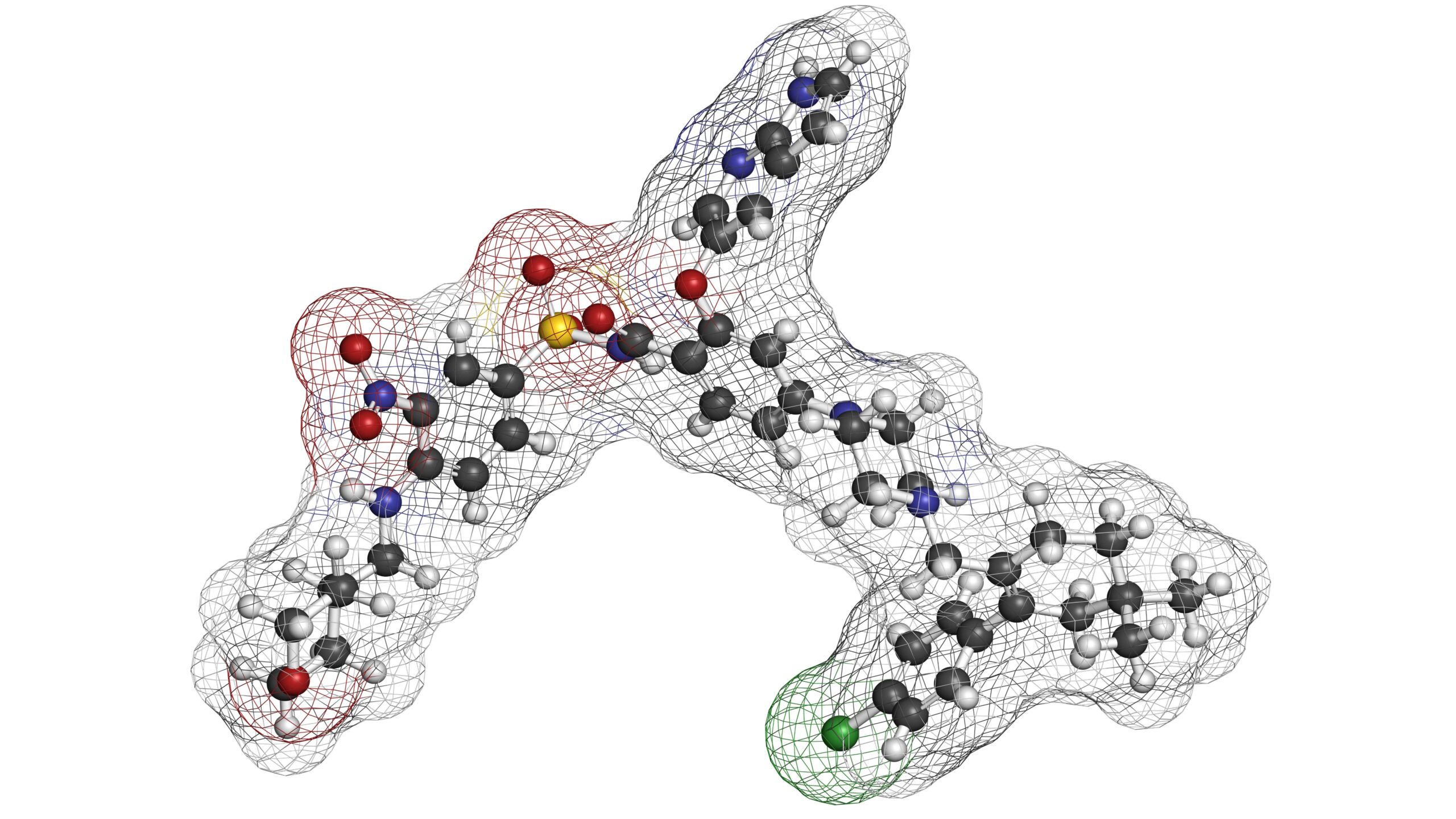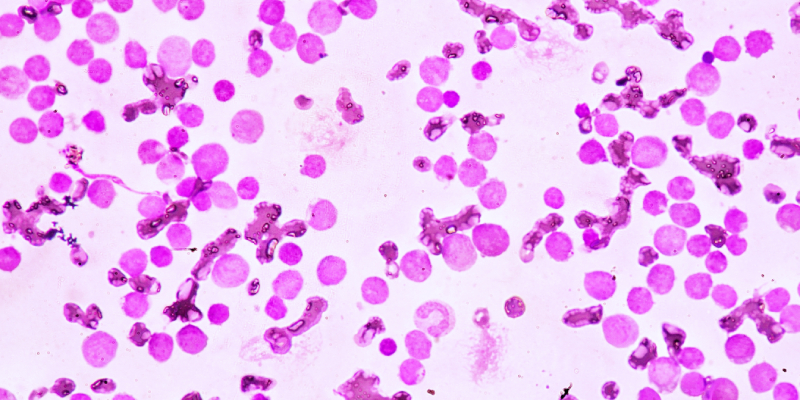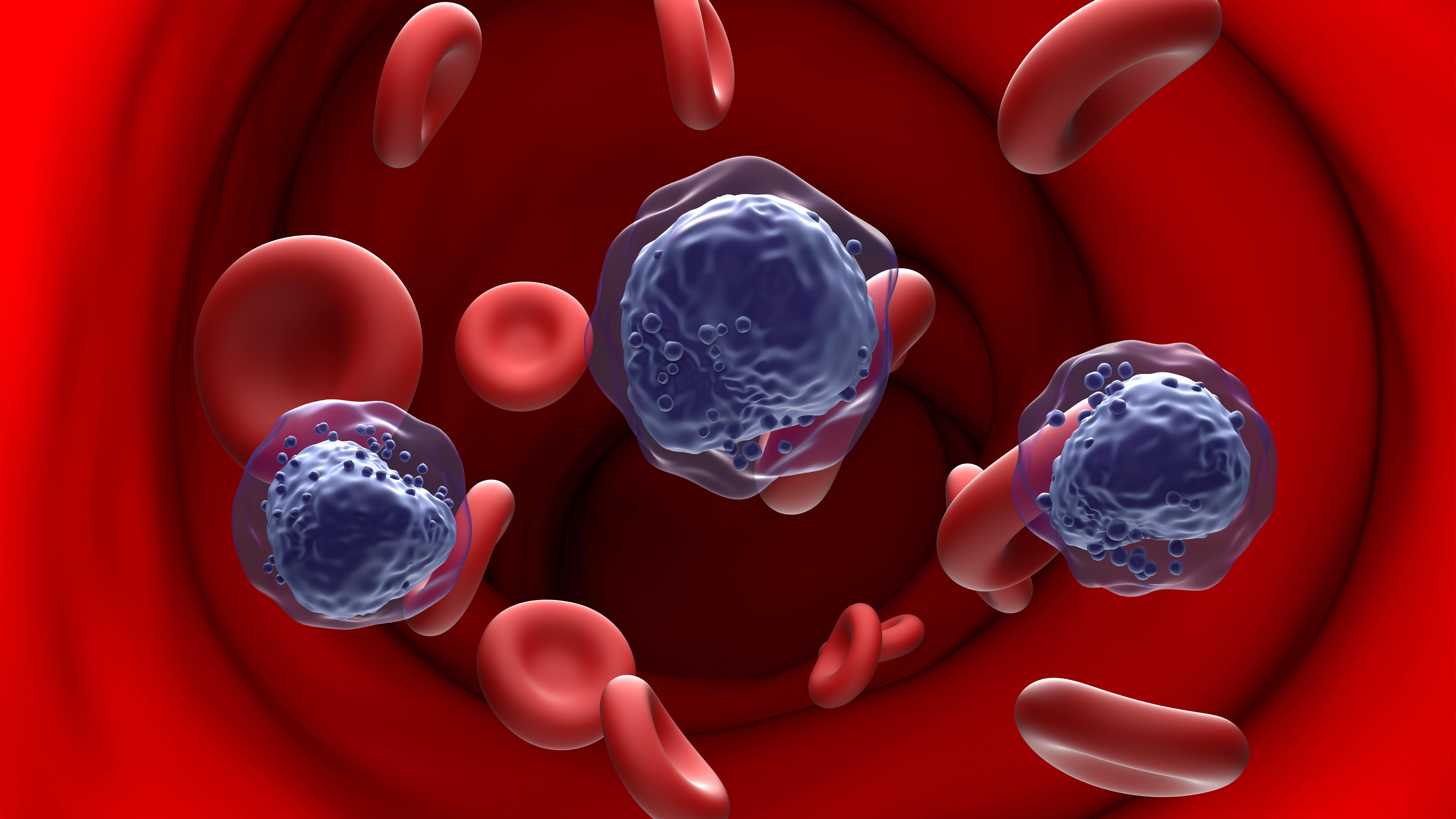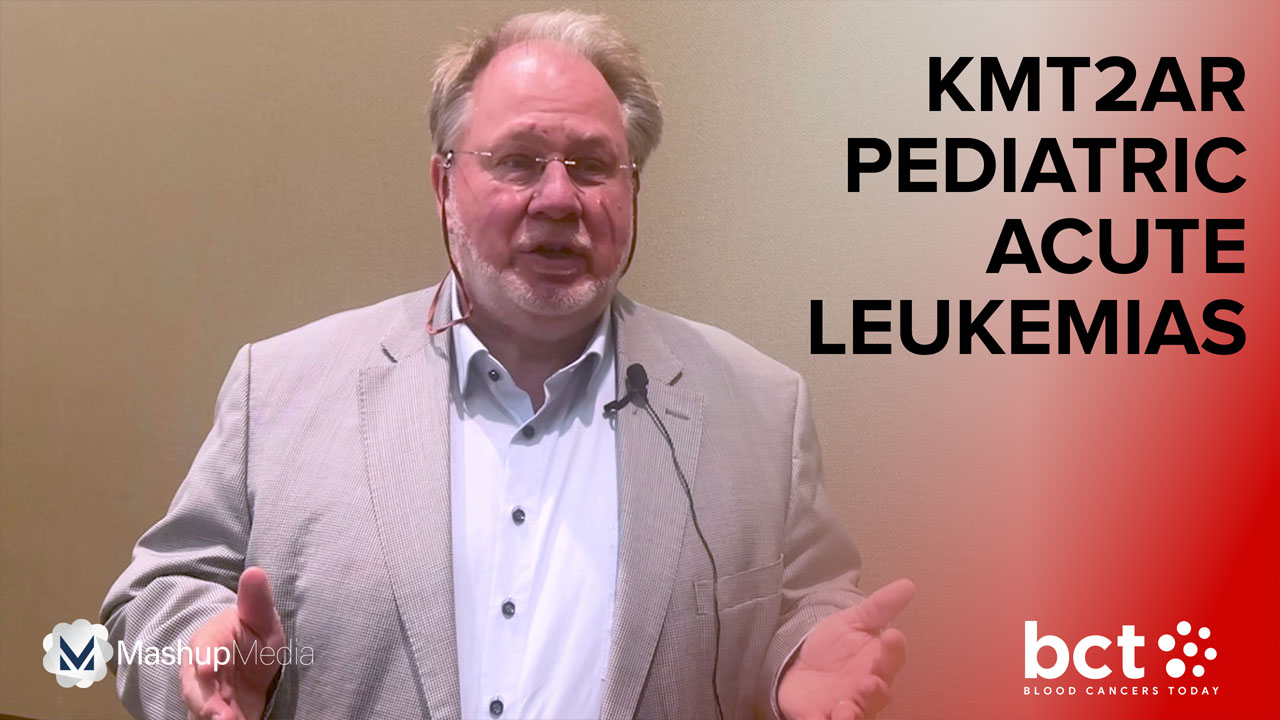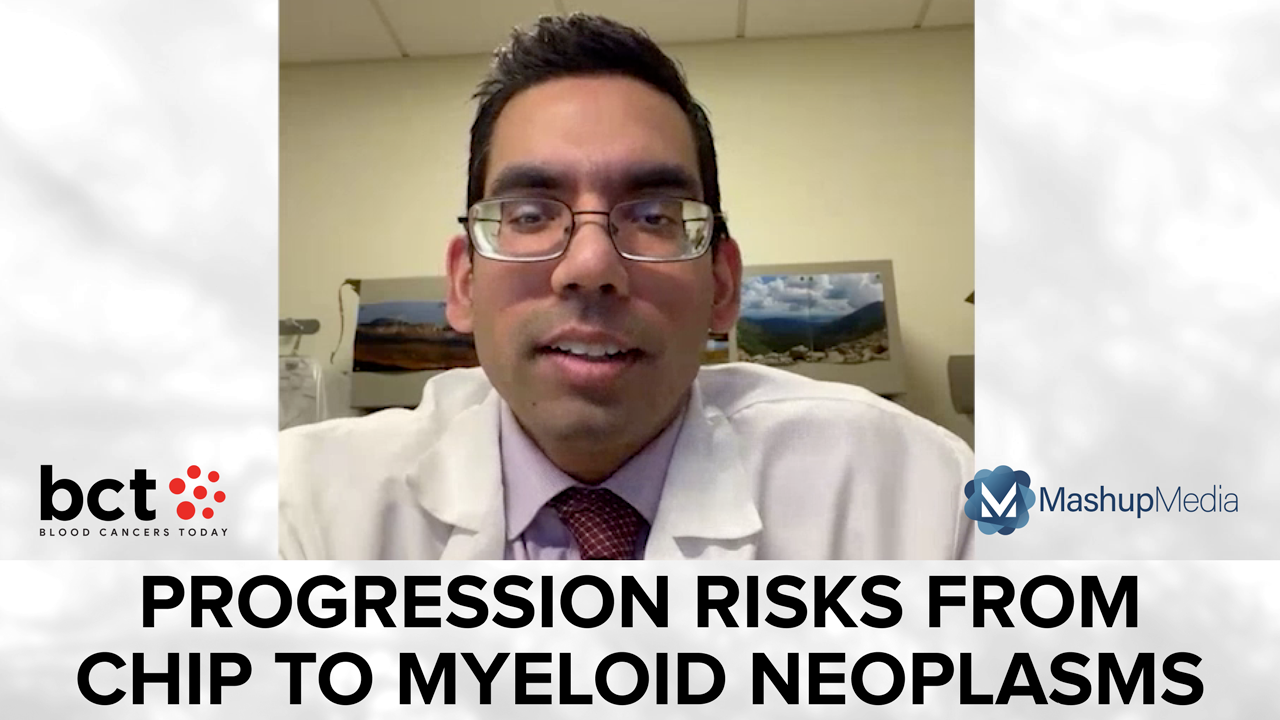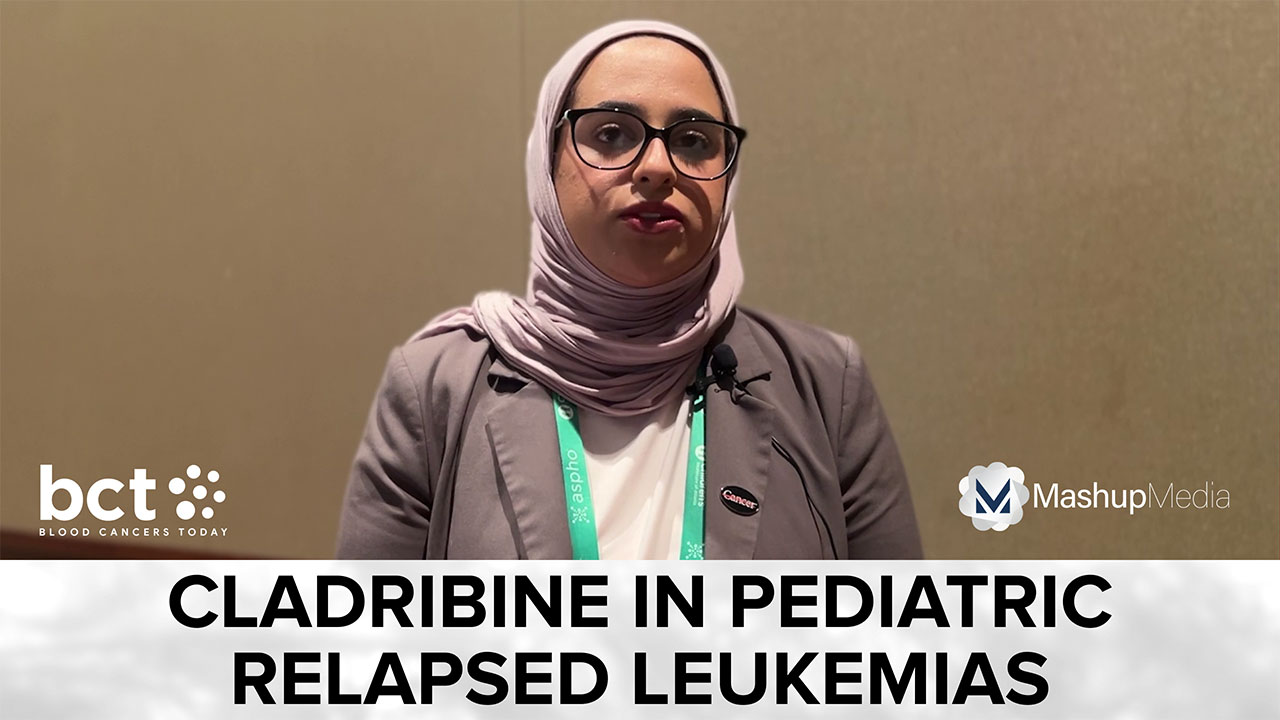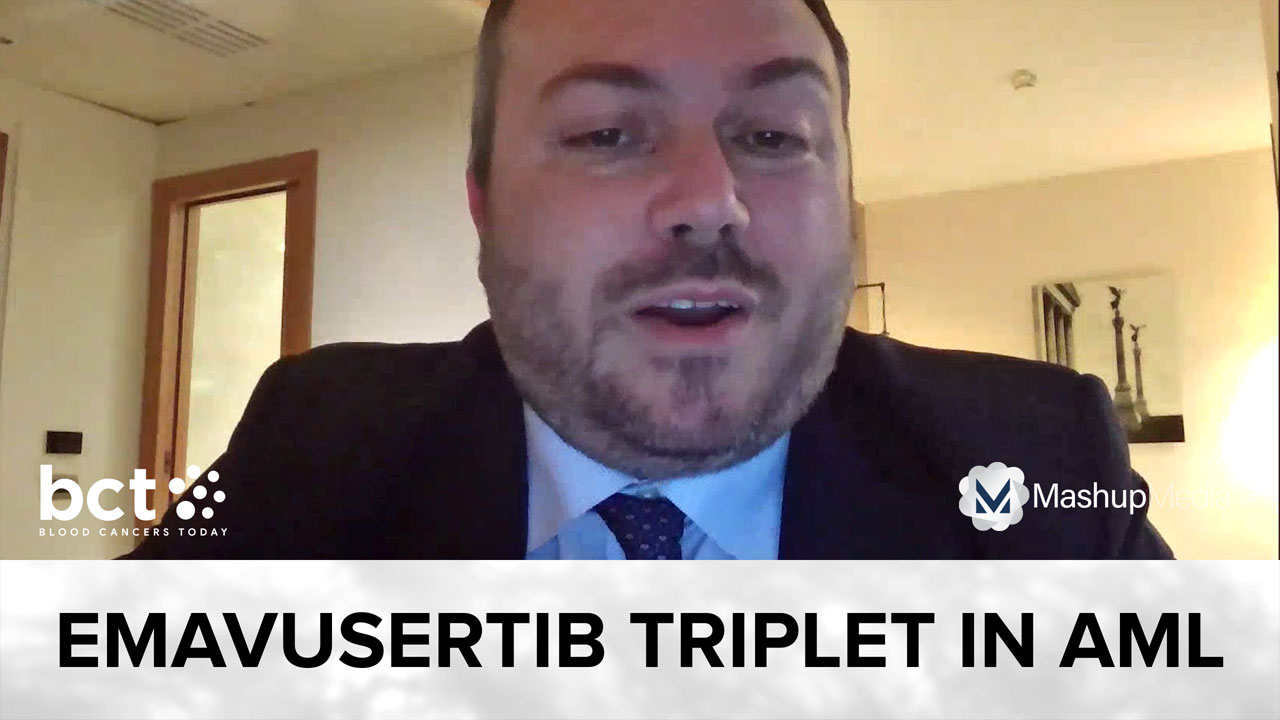Acute Myeloid Leukemia
The latest news, research, and perspectives in acute myeloid leukemia (AML). AML, an aggressive blood cancer, is the most common type of acute leukemia in adults and most often develops when myeloid cells that normally develop into the various types of mature blood cells instead form abnormal myeloblasts.
Advertisement
Christophe Willekens, MD, compares standard dosing venetoclax for AML to seven-day dosing plus azacitidine.
A reduced venetoclax exposure of seven days was comparable with continual venetoclax exposure in patients with AML.
The first analysis from a phase 1b study shows combination has efficacy even in patients previously on venetoclax.
The updated findings are from a prospective phase II trial presented at the EHA 2024 Hybrid Congress.
Patients who responded to treatment achieved more than 90% bone marrow blast reduction compared with baseline.
In this executive editor's message, Elias Jabbour, MD, writes about redefining leukemias as curable or less curable.
Advertisement
The patient, a 63-year-old male, was diagnosed with HIV-1 infection 31 years before undergoing transplantation.
Oral tamibarotene is currently being evaluated in combination with azacitidine and venetoclax in the SELECT-AML-1 trial.
Early detection and prevention are particularly important in leukemia, Dr. Garcia-Manero explained.
Palliative care facilitates communication and helps with symptom management, the researchers noted.
FLAG-IDA or DA plus gemtuzumab ozogamicin had differing performance in younger patients with newly diagnosed AML.
MRD status after induction chemotherapy predicted benefit from allogeneic transplant in patients with NPM1-mutated AML.
Low-dose azacitidine plus venetoclax was a feasible maintenance regimen in AML after intensive or low-intensity induction.
A phase II study presented at ASPHO 2024 evaluated revumenib in KMT2A-rearranged ALL and AML.
The average rate of progression for CHIP to MDS or AML is about 1% per year, Dr. Patel explained.
Around 45% of patients had a complete response after cladribine, and 31% proceeded to transplant.
The researchers found that CALM-AF10 leukemia cells grow slower after the SIX1 knockdown.
Claudio Cerchione, MD, PhD, describes his presentation from AACR 2024 on a emavusertib triplet in patients with AML.
The conference has a lot of great sessions, including an untraditional keynote speaker, Dr. Hastings said.
HMA plus venetoclax was found to be effective and well tolerated in patients with AML who relapsed after HSCT.

